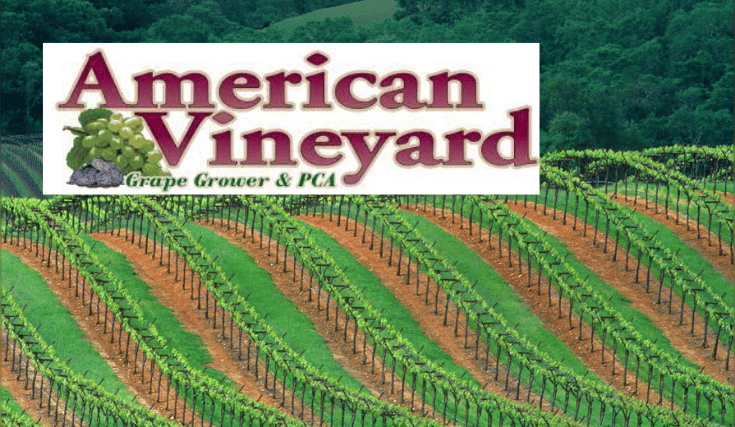Major wildfires, blistering heat waves, and a diminishing water supply are wreaking havoc on winemaking regions around the world. For California, where winemaking is a $100 billion industry, employing hundreds of thousands of workers, the drought conditions have created a ‘new normal’ that is forcing vineyard managers to adapt. In California’s San Joaquin Valley, for example, at least a half-million acres have been projected to come out of irrigated production due to the rollout of the Sustainable Groundwater Management Act (SGMA), a statewide framework to help protect groundwater resources over the long term.
With less water to go around, vineyards are facing unprecedented challenges and being forced to alter operations while maintaining grape quality and yields. Despite this harsh reality, there’s good news: with the development of its premium biochar, VGrid Energy Systems, a California-based company focused on clean energy and water-saving products, is helping vineyards address climate change-driven hurdles by optimizing their water usage, generating long-term soil health and improving yields.
While VGrid’s promise of improved water retention, nutrition binding, root uptake, and plant development may sound too good to be true, the source of this innovation is rooted in history. More than 2,000 years ago, in the Amazon rainforests, it is believed civilizations thrived agriculturally because of what is called Terra Preta, or dark earth. Rich in organic matter, this dark earth contained high concentrations of charcoal produced from organic matter—referred to today as biochar. The fertile soil sustained ancient cultures’ productivity for centuries, and the same technique could be the key to saving California’s vineyards.
“With the development of VGrid’s premium biochar, we are addressing today’s most pressing issues and changing how we look at water usage using a time-tested solution,” said Greg Campbell, CEO at VGrid Energy Systems. “If we want to continue cultivating the gifts our planet provides, we must find
a way to operate in a sustainable and responsible manner, and biochar is a key part of the answer.”
Biochar has received attention among viticulture circles lately, and for good reason—the benefits are manifold. However, few organizations—if any—have
refined biochar in such a way as VGrid, which has not only harnessed the beneficial qualities of biochar but also optimized its performance. How? The company’s proprietary technology utilizes a high-temperature gasification process that converts biomass, specifically waste pistachio shells, into a highly porous and pure form of biochar.
VGrid’s Persist™ premium biochar is a soil amendment with a high surface-area-to-volume ratio, which allows it to adsorb and retain water in the soil for
up to six times longer—a vital solution for vineyards experiencing severe drought conditions. Additionally, VGrid’s premium biochar has an ultra-porous structure that facilitates the colonization of beneficial microorganisms in the soil, helping to bind nutrients in the root zone for healthier plants while reducing dependence on chemical fertilization.
Complementing its premium biochar, VGrid’s Persist PAF bio-condensate can help roots absorb water and nutrients, eliminating the need for chemical
fertilizers. PAF, which is commonly referred to as wood vinegar, can supercharge plants, promoting healthier leaves and fruit skins.
Both Persist premium biochar and PAF can help vineyards at any step along the growing process, including new plantings, regular maintenance, and
annual top dressing. Whether growers are struggling with drought conditions or want to improve grape yields, Persist premium biochar and PAF are a powerful one-two punch that has both immediate and long-term benefits,” Campbell said. “All the while, this process is reversing climate change by sequestering carbon in the soil that would otherwise have been released into the atmosphere as CO2.”
The stabilized carbon captured by Persist premium biochar will remain sequestered in the soil for 1,000 years or more, preventing the biomass from quickly releasing its carbon back into the atmosphere when it decomposes. This interrupts the natural carbon cycle and helps offset the CO2 pumped into the atmosphere from the burning of fossil fuels.
“It’s not enough to simply stop the climate-damaging practices we have implemented for the past century or more,” Campbell said. “We can begin to undo the damage with solutions like biochar, while ensuring our wineries remain with us for generations to come.” For more information on VGrid’s Persist premium biochar and PAF, visit PersistProducts.com.

